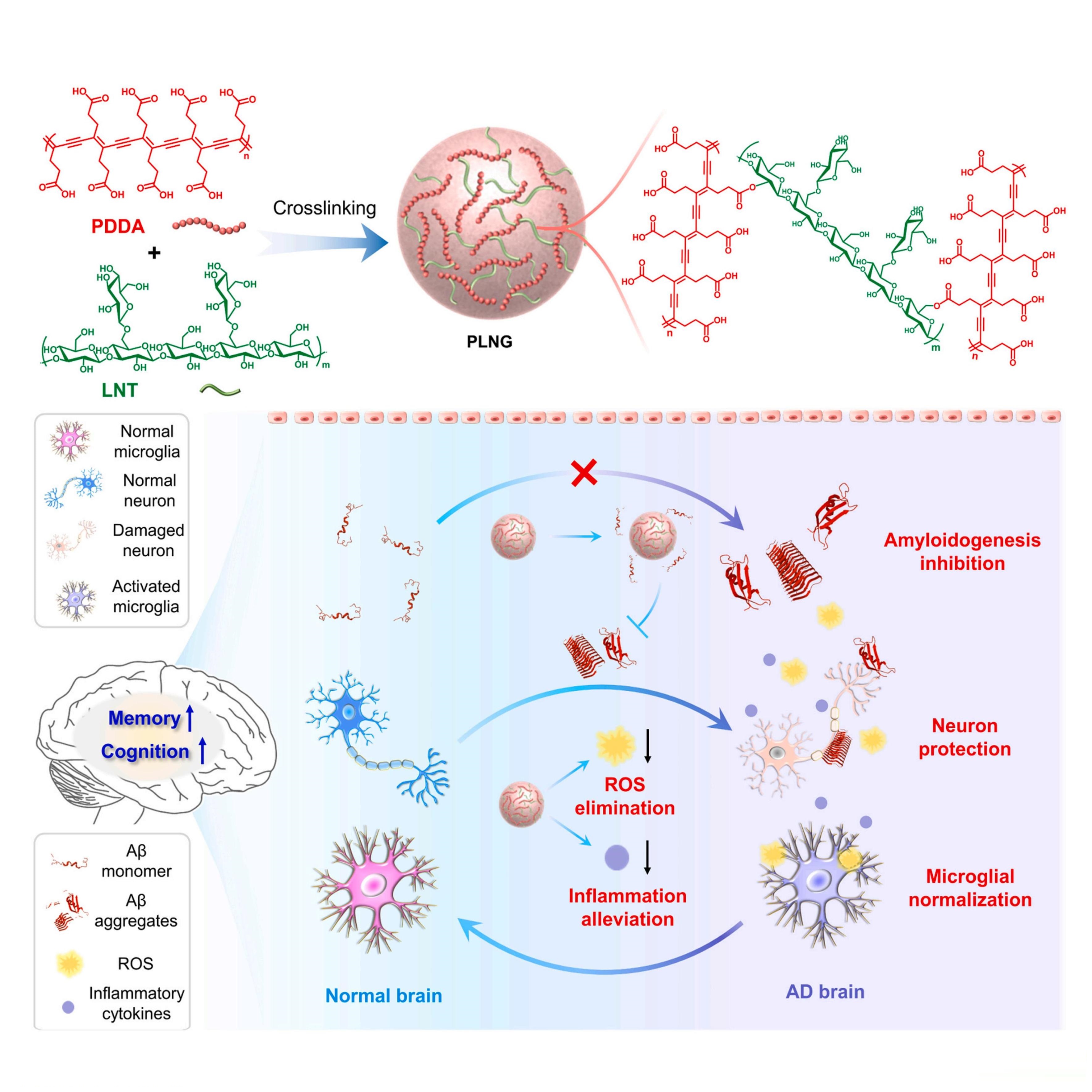Microenvironment modulating nanogels by Shiitake-derived lentinan and a reactive oxygen species scavenging conjugated polymer for the treatment of Alzheimer’s disease
Release time:2024-02-07
Hits:

Indexed by:Journal paper
Correspondence Author:Liang Luo,Fanling Meng
Journal:Nano Today
Included Journals:SCI
Key Words:Alzheimer's Disease; Amyloid-β; Lentinan; Polydiacetylene; Inhibition; ROS scavenging
DOI number:10.1016/j.nantod.2024.102178
Date of Publication:2024-02-07
Impact Factor:17.4
Abstract:Microenvironment imbalances in the brain, including β-amyloid (Aβ) aggregation, inflammation, oxidative stress, etc., have been considered as a hallmark in the early stage of Alzheimer's disease (AD). Therapeutic strategies that can simultaneously modulate multiple disorders in the AD microenvironment are urgently needed to combat the intricate pathogenesis of AD. Here we present a nanogel system (PLNG) that can effectively modulate AD microenvironment through concurrent Aβ amyloidogenesis inhibition and oxidative stress alleviation. PLNG is synthesized by crosslinking lentinan (LNT), a Shiitake-derived polysaccharide that can prevent Aβ amyloidogenesis, and a conjugated polymer poly(deca-4,6-diynedioic acid) (PDDA) that can scavenge the harmful reactive oxygen species (ROS). PLNG not only significantly enhances the inhibitory activity of LNT on Aβ amyloidogenesis through the multivalent effect, but also alleviates the oxidative stress and reduces the expression of inflammatory cytokines, thereby protecting neurons and suppressing the priming of microglia in the pathological AD microenvironment. PLNG has significantly improved memory and spatial recognition ability on two AD mouse models, with excellent biosafety and biocompatibility, hence paving a new pathway for the simple design of natural components to modulate complex AD microenvironment imbalance.